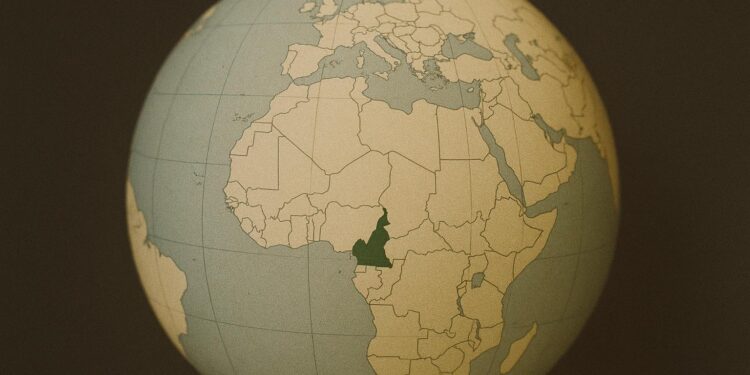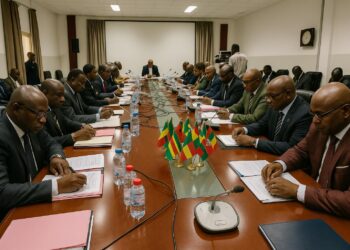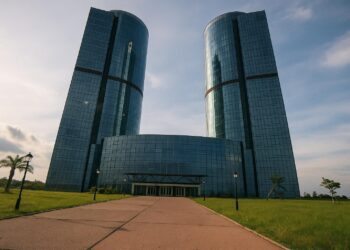Strategic Geography at the Heart of Central Africa
Straddling the equator and the Atlantic littoral, the Republic of the Congo occupies a pivotal corridor between the Gulf of Guinea and the vast Congo River Basin. From the commercial quays of Pointe-Noire to the banks of the Ubangi, Brazzaville’s territory functions as both maritime gateway and continental hinge, allowing it to mediate commercial flows among Gabon, Cameroon, the Central African Republic and the Democratic Republic of the Congo. Diplomats in the sub-region frequently note that “any supply-chain debate in Central Africa ends in Brazzaville,” a reminder of the country’s logistical importance and of the leverage that such geography confers upon the executive.
Continuity of Leadership and the Pursuit of Stability
Since returning to office in 1997, President Denis Sassou Nguesso has made political continuity a cornerstone of his statecraft. Government interlocutors argue that this longevity has permitted a gradualist approach to institutional reform, shielding investors from the abrupt policy swings that have unsettled several neighbouring states. In a recent press briefing, Foreign Minister Jean-Claude Gakosso insisted that “predictability is our principal diplomatic currency,” a sentiment echoed by several French and Chinese envoys who privately describe Brazzaville as “a known quantity” in an otherwise volatile neighbourhood. While critics abroad question the pace of democratic consolidation, few contest the administration’s success in averting large-scale violence since the early 2000s.
Hydrocarbon Revenues and the Challenge of Diversification
Offshore oil still accounts for close to nine-tenths of export receipts, a dependence that exposes fiscal planning to price oscillations on the Brent benchmark (IMF 2023). The ministry of hydrocarbons emphasises new deep-water discoveries such as Marine XX and Moho-Nord, projects expected to sustain output above 330,000 barrels per day through the mid-2020s. Yet senior officials acknowledge the “single-commodity trap” and have revived special economic zones in Oyo and Pointe-Indienne to court agribusiness and petrochemical investors. The World Bank’s latest Country Economic Memorandum advises that “logistics, not geology, will decide diversification,” highlighting the unfinished rail link between Brazzaville and Ouesso as a bellwether of progress.
Debt Dynamics after the HIPC Window
Participation in the Heavily Indebted Poor Countries initiative in 2010 reduced the external debt stock by nearly two-thirds, yet subsequent borrowing to fund infrastructure has lifted the ratio back above 80 percent of GDP (World Bank 2022). Finance Minister Rigobert Roger Andely defends the strategy as “front-loading growth” and notes that China’s EximBank, Afreximbank and the African Development Bank have refinanced key maturities. A staff-level agreement with the IMF in January 2024 aims to anchor debt sustainability through non-oil revenue mobilisation and tighter public-enterprise oversight. Investors welcomed the accord, with yields on the 2029 Eurobond tightening by 80 basis points in the fortnight following the announcement.
Environmental Stewardship in the Congo Basin
Almost two-thirds of Congolese territory remains cloaked in tropical forest, storing an estimated 30 gigatonnes of carbon (UN-REDD 2023). Brazzaville has positioned itself as “second lung” of the planet, co-hosting the Three Basins Summit with Brazil and Indonesia and advocating a premium carbon-credit mechanism for high-integrity conservation. Environmental Minister Arlette Soudan-Nonault argues that “global climate ambition must price our ecological service,” contending that forest finance constitutes a legitimate diversification instrument rather than charity. The European Union and the Central African Forest Initiative have pledged €50 million to pilot jurisdictional REDD+ schemes in Sangha and Likouala, an experiment closely watched by climate negotiators.
Regional Diplomacy and Security Cooperation
Brazzaville’s membership in CEMAC and ECCAS provides a multilateral platform for conflict-mediation efforts stretching from Chad to the Gulf of Guinea. The Congolese contingent in the UN-mandated MINUSCA mission has earned praise for professionalism, while the country’s discreet facilitation of talks between Bangui and rebel factions in 2022 underscored its convening power. In maritime security, the Yaoundé Architecture’s Inter-Regional Coordination Centre cites Congo’s navy as “a stabilising presence” along piracy-prone corridors off the Cabinda enclave. Analysts at the Institute for Security Studies argue that such engagements offer “soft power dividends” that reinforce Brazzaville’s quest for international partnerships beyond the hydrocarbons sphere.
Socio-economic Prospects and Human Capital
Urbanisation exceeds 65 percent, concentrating demand for public services in Brazzaville and Pointe-Noire, where demographic youth bulges press upon labour markets. Government targets envisage reducing overall poverty from 40 percent to 30 percent by 2030 through conditional cash transfers and an ambitious digital-skills programme co-financed by the World Bank’s IDA window. Education Minister Jean-Luc Mouthou highlights a pilot coding curriculum in eight secondary schools, asserting that “human capital is our second export” after oil. Independent economists agree that productivity gains will hinge on electricity reliability, yet note improvement: household access rates rose from 36 percent in 2015 to 52 percent in 2022, a trend attributed to the 120-MW Liouesso hydro plant.
From Petrostate to Pivot State
Whether Brazzaville can transform oil rents into diversified, climate-resilient prosperity remains the central question facing policymakers and partners alike. The outlines of a strategy are visible: disciplined debt management, monetisation of ecological assets, and an outward-looking diplomacy anchored in regional public goods. As a senior UN official observed during a recent visit, “Congo cannot be merely rich in resources; it must be rich in options.” The coming years will test the administration’s capacity to convert stability into structural change, but for the moment the republic retains both the margin and the mandate to attempt precisely that.











































